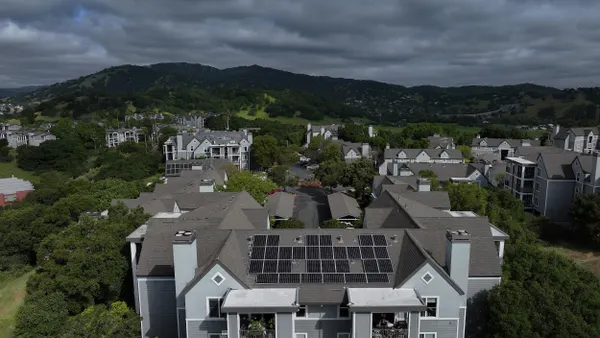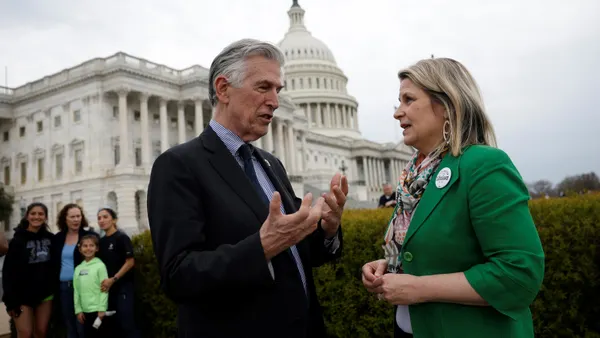Dive Brief:
- Filings with the Florida Supreme Court outlined the debate over a proposed constitutional amendment from the utility-backed Consumers for Smart Solar (CSS) that aims to prevent legalizing third-party ownership of solar in the state, Politico reports.
- A CSS filing argues the amendment establishes a right for consumers to own or lease solar equipment, help local and state governments protect consumer rights and public safety while ensuring costs for electricity delivery are not shifted to non-distributed solar owners.
- Filings by opponents, including environmental groups and Floridians for Solar Choice (FSC), argue the amendment’s language is misleading because it doesn't offer real choice, doesn't change regulations that apply to solar and should therefore be disqualified from the November ballot.
Dive Insight:
The debate in Florida over legalizing third-party owned solar heated up again in recent court filings. Advocates for TPO financing argue legalization could grow solar energy in the state, which has considerable untapped solar potential.
Two dueling ballot initiatives are trying to resolve whether or not third-party providers have the right to sell electricity directly to consumers without being classified as a utility.
The FSC proposal would legalize third party ownership (TPO) of distributed solar in Florida and allow customers with systems of 2 MW or less to sell electricity directly to other consumers. The CSS proposal would establish a constitutional right in Florida for customers “to own or lease solar” but wouldn't legalize TPO financing.
The state's four major electric utilities, Duke Energy Florida, Florida Power & Light, Gulf Power, and Tampa Electric, have all together donated nearly $4 million to CSS, according to Politico. The utilities said in their filings that the amendment "provides an essential, balanced approach to what is expected to be the continuing development and expansion of solar power in Florida."
A brief from environmental groups Progress Florida, Environment Florida, and the Environmental Confederation of Southwest Florida, argued the CSS amendment will open the door for utilities to impose discriminatory charges and rates on solar owners.
CSS was formed in response to TPO-advocacy group FSC. FSC argues that the CSS amendment was initiated to distract state residents from efforts to legalize TPO financing. FSC highlighted a Miami Herald report that some who signed petitions for the utility-backed amendment thought they were supporting FSC.
While the FSC's language was approved earlier in 2015 for the upcoming election ballot this year, a payment dispute with a consulting firm hired to secure signed petitions led to FSC failing to get the required number of signatures. The FSC is now "exploring options for 2018." Meanwhile, the CSS amendment has secured 695,376 validated signatures, about 11,000 more than the 683,149 required to qualify it for the 2016 ballot, and is now seeking the court's approval of its language.













